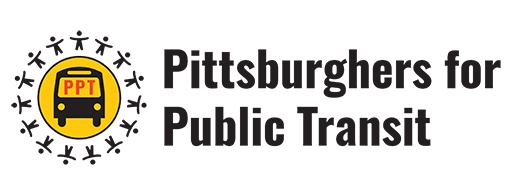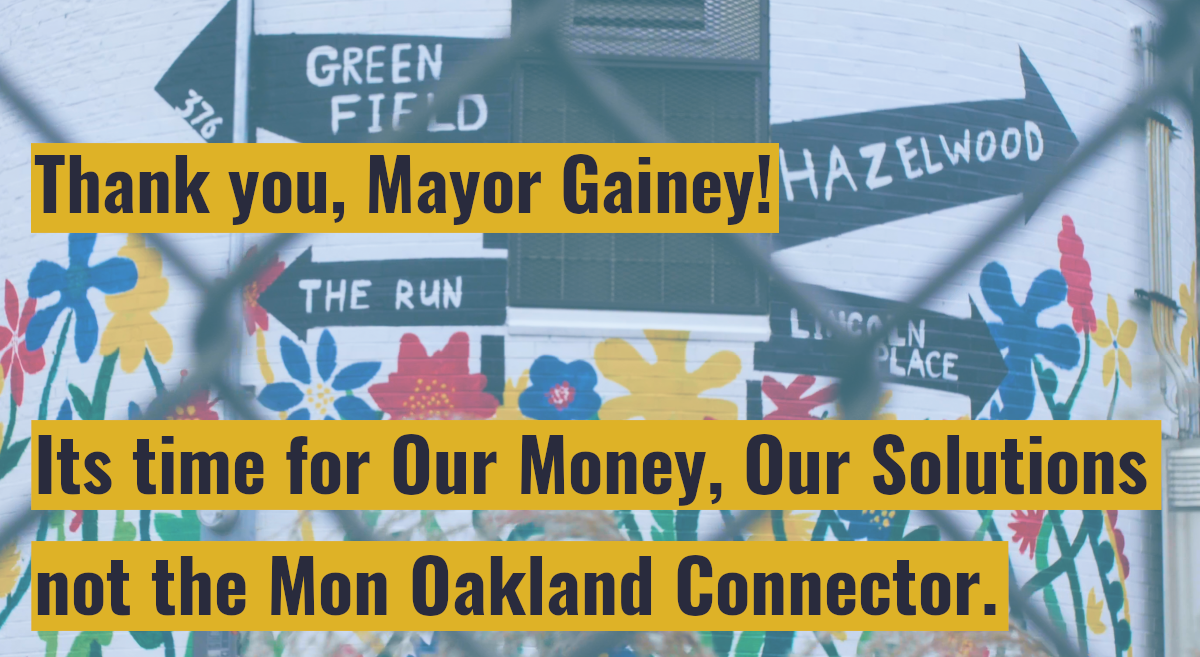
by Dan Yablonsky | Mar 4, 2022 | Uncategorized
image description: text reads “Thank you, Mayor Gainey! Its time for Our Money, Our Solutions, not the Mon Oakland Connector.” overlaid on a photo of a mural between Four Mile Run, Hazelwood, and Greenfield. Join us in saying thank you Mayor Gainey for...

by Dan Yablonsky | Feb 17, 2022 | Uncategorized
image description: event promotional image. Includes text “MOBILITY FOR WHO? REBUILDING BRIDGES TO TRANSPORTATION JUSTICE” FEB 2022 REPORT RELEASE” over a map of Pittsburgh and an image of a SPIN scooter laid across the sidewalk Scooters? Sidewalk...
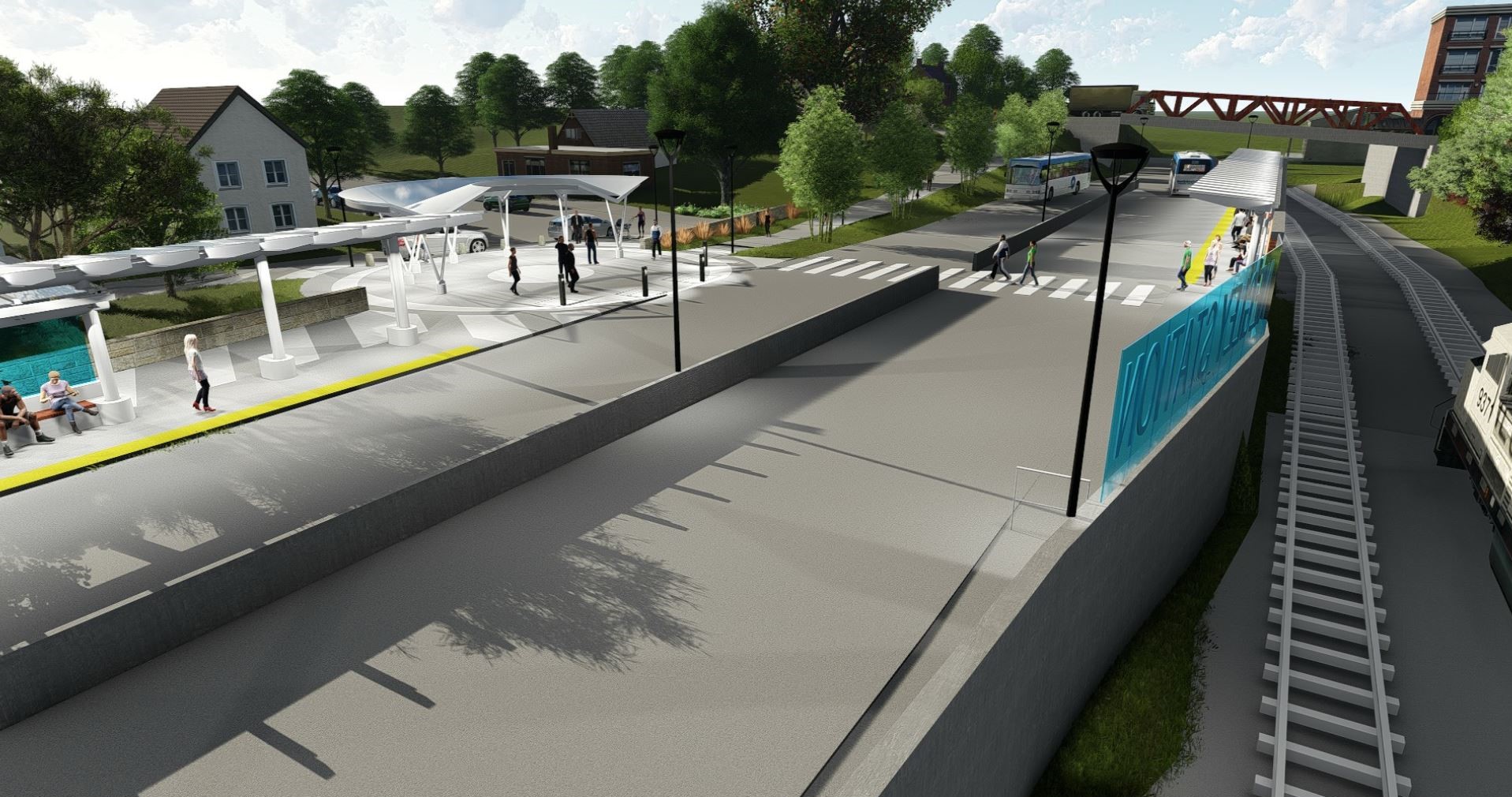
by Dan Yablonsky | Feb 11, 2022 | Uncategorized
Upgrades to S. Negley Station begin Feb 14th. Port Authority also awarded 3 other grants to improve Wilkinsburg Station, build 4 miles of sidewalks, and improve 8 high-use bus stops throughout the system! After a years-long planning process, Port Authority will begin...
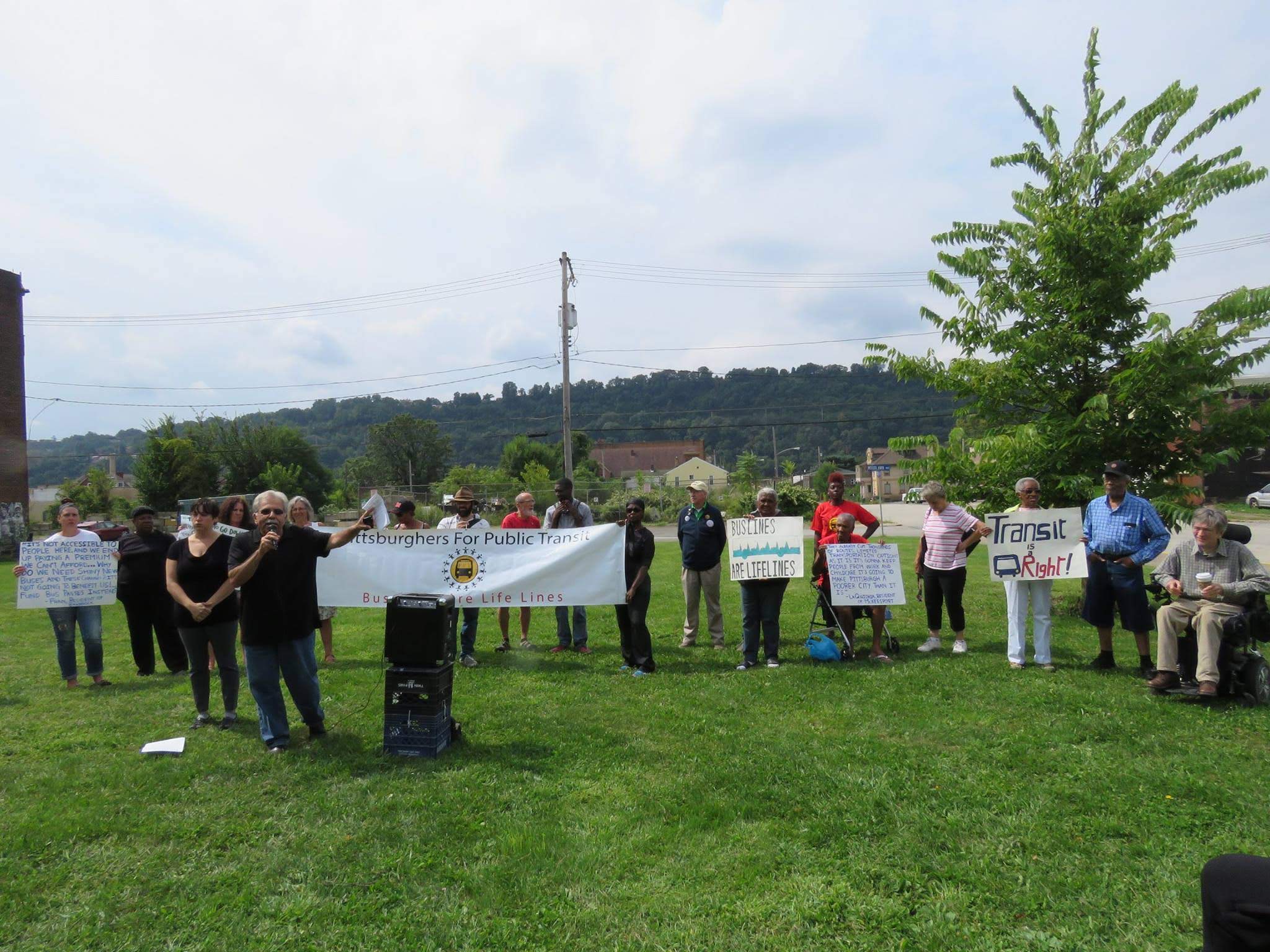
by Dan Yablonsky | Feb 9, 2022 | Uncategorized
Image Description: Ms. Debra Green holds the microphone at a downtown rally surrounded by people standing and sitting in wheelchairs with signs reading “BRT for the Mon Valley”, “No Cuts to 61A”, “Bus Lines are Lifelines.” A new...
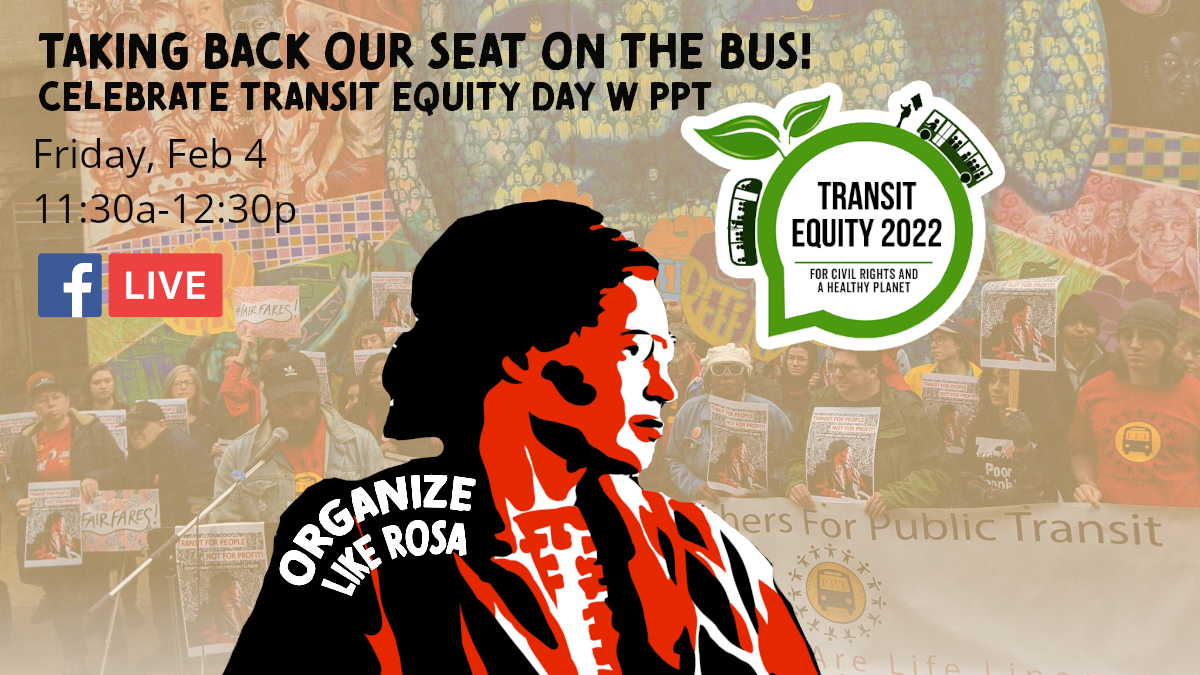
by Dan Yablonsky | Feb 4, 2022 | Uncategorized
image description: An illustrated portrait of Rosa Parks is at the center of the image with the event name, date (2/4/22, 11:30-12:30) , a Transit Equity Day logo, and a facebook live logo. In the background of the image is There is no justice without an organized...
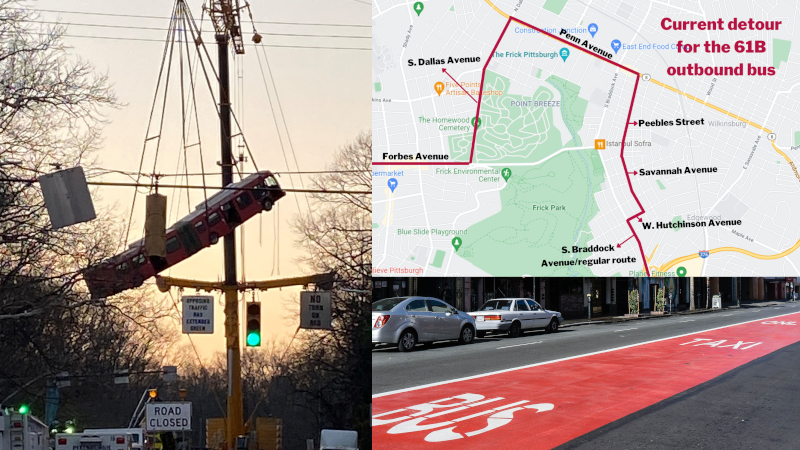
by Dan Yablonsky | Feb 2, 2022 | Uncategorized
Image description: collage of three photos, left is a photo of the bus being lifted by a crane from the collapsed Fern Hollow Bridge. Upper right is a map from WESA that shows the detour for the 61B outbound (Forbes > S. Dallas > Penn > Peebles > Savannah...







